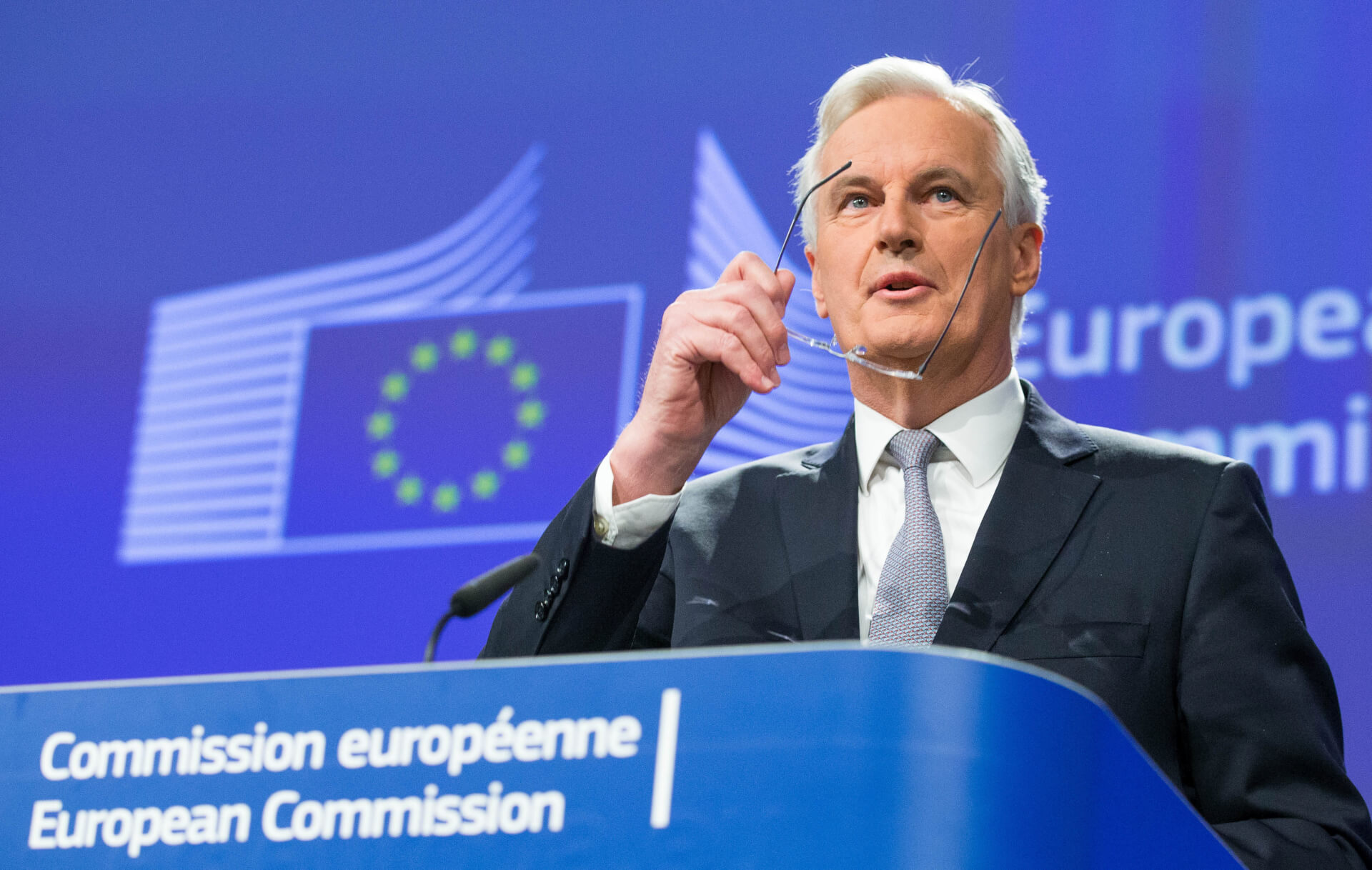The European Commission’s chief negotiator, Michel Barnier, warned that the United Kingdom is not ‘automatically entitled’ to “any of the benefits that the EU may have offered or granted in other contexts and circumstances to other, often very different, partners”.
Barnier’s comments came after the UK’s chief negotiator, David Frost, contended that the EU was treating the UK as an “unworthy” partner by offering a “low-quality” trade agreement that would force it to “bend to EU norms”. He added that Barnier was demanding undue and ‘unprecedented’ influence over British laws and institutions through “novel and unbalanced proposals”. Frost and the UK are unwilling to accede to Brussels’ labor, environmental, and social standards without a concurrent relaxation of trade barriers. In addition, the UK argues that such standards greatly impact its trade in animal products, motor vehicles, medicinal products, organics, and chemicals.
Frost also threatened that the UK could simply sign higher-quality free-trade agreements with other partners around the world. In addition, he claimed that the EU was imposing provisions that it did not impose on its other partners, such as in the Transatlantic Trade and Investment Partnership (TTIP) with the US, in the fisheries agreement with Norway, and in trade deals with Japan and Canada. While the EU argues that “robust” provisions and “safeguards” are required due to the UK’s “geographic proximity and economic interdependence”, the UK posits that the EU is not honoring its commitment to a level playing field.
In response, the EU has accused the UK of simply “cherry-picking” the most favorable features of pre-existing trade agreements that the EU has with other countries. David Henig, director of the UK trade policy project and a former trade negotiator, said that the UK is “looking for more than Canada, Korea or Japan in exchange for the same – or probably even less – in terms of level playing field provisions”. Along the same lines, Barnier said, “The UK cannot expect high-quality access to the EU Single Market if it is not prepared to accept guarantees to ensure that competition remains open and fair. The EU has been clear about this since 2017.” Barnier further clarified that the UK would not be “bound by EU law after the end of the transition period”, but that the EU was simply setting its standards for trade.
This latest exchange between the UK and EU is not altogether surprising given that this is the third round of negotiations and that very little has been agreed upon so far. However, there was some hope after Cabinet office minister Michael Gove, in early May, dropped the UK’s previous “no compromise” stance by indicating that the government would be willing to accept tariffs by the European Union (EU). Gove acknowledged that the UK might “end up like Canada, with tariffs on a possible number of goods”. He also admitted that there will be border checks in the Irish Sea despite PM Boris Johnson’s statement in December that “there will be no checks on goods from GB to Northern Ireland or Northern Ireland to GB”.
In March, reports emerged that Johnson had ordered his Brexit team to “get around” the Northern Ireland protocol of the Withdrawal Agreement. Johnson wished to minimize checks at the ports and airports in Northern Ireland so that the UK can avoid Irish Sea checks on goods passing from Great Britain to Northern Ireland. However, both the Republic of Ireland and the EU quickly moved to ask the British government to honor all the terms of the agreement.
At the time, the PM also said that part of the Brexit agreement is that the UK will become free of the EU’s Common Fisheries Policy, thus leaving “British fishing grounds” to British boats. However, the EU General Affairs Council announced its intention to “uphold the existing reciprocal access to waters”.
The EU, on the other hand, worries that if the UK rescinds regulations on labor, state aid, and environmental protection, then this could give UK businesses an unfair advantage over their EU counterparts. However, the UK is unwilling to maintain its commitment to the EU’s competition regulations once Brexit goes through, arguing that this undermines the principle of sovereignty.
Barnier has said that the EU and the UK will take a joint decision on June 30 about whether to extend the transition period from December 31, 2020. In fact, the EU has been repeatedly pressing for such a delay due to the economic disruption caused by the coronavirus crisis. However, the UK remains steadfast in its refusal to extend the Brexit deadline.
UK Not ‘Automatically Entitled’ to Same Benefits as Other Trade Partners, Warns EU
Michel Barnier’s comments came after David Frost said the EU was treating the UK poorly.
May 21, 2020

IMAGE SOURCE: STEPHANIE LECOCQ / EPA
